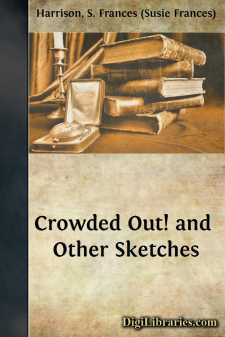Categories
- Antiques & Collectibles 13
- Architecture 36
- Art 48
- Bibles 22
- Biography & Autobiography 815
- Body, Mind & Spirit 144
- Business & Economics 28
- Children's Books 18
- Children's Fiction 14
- Computers 4
- Cooking 94
- Crafts & Hobbies 4
- Drama 346
- Education 58
- Family & Relationships 59
- Fiction 11835
- Games 19
- Gardening 17
- Health & Fitness 34
- History 1378
- House & Home 1
- Humor 147
- Juvenile Fiction 1873
- Juvenile Nonfiction 202
- Language Arts & Disciplines 89
- Law 16
- Literary Collections 686
- Literary Criticism 179
- Mathematics 13
- Medical 41
- Music 40
- Nature 180
- Non-Classifiable 1768
- Performing Arts 7
- Periodicals 1453
- Philosophy 65
- Photography 2
- Poetry 896
- Political Science 203
- Psychology 44
- Reference 154
- Religion 515
- Science 126
- Self-Help 85
- Social Science 83
- Sports & Recreation 34
- Study Aids 3
- Technology & Engineering 59
- Transportation 23
- Travel 463
- True Crime 29
Our website is made possible by displaying online advertisements to our visitors.
Please consider supporting us by disabling your ad blocker.
Browning's Heroines
by: Maxwell Armfield
Categories:
Description:
Excerpt
PREFACE
When this book was projected, some one asked, "What is there to say about Browning's heroines beyond what he said himself?"—and the question, though it could not stay me, did chill momentarily my primal ardour. Soon, however, the restorative answer presented itself. "If there were nothing to say about Browning's heroines beyond what he said himself, it would be a bad mark against him." For to suggest—to open magic casements—surely is the office of our artists in every sort: thus, for them to say all that there is to say about anything is to show the casement stuck fast, as it were, and themselves battering somewhat desperately to open it. Saying the things "about" is the other people's function. It is as if we suddenly saw a princess come out upon her castle-walls, and hymned that fair emergence, which to herself is nothing.
Browning, I think, is "coming back," as stars come back. There has been the period of obscuration. Seventeen years ago, when the Yellow Book and the National Observer were contending for les jeunes, Browning was, in the more "precious" côterie, king of modern poets. I can remember the editor of that golden Quarterly reading, declaiming, quoting, almost breathing, Browning! It was from Henry Harland that this reader learnt to read The Ring and the Book: "Leave out the lawyers and the Tertium Quid, and all after Guido until the Envoi." It was Henry Harland who would answer, if one asked him what he was thinking of:
"And thinking too—oh, thinking, if you like,How utterly dissociated was I. . . ."
—regardless of all aptitude in the allusion, making it simply because it "burned up in his brain," just as days "struck fierce 'mid many a day struck calm" were always his days of excitement. . . . A hundred Browning verses sing themselves around my memories of the flat in Cromwell Road.
Misconceptions was swung forth with gesture that figured swaying branches:
"This is a spray the bird clung to. . . ."You were to notice how the rhythms bent and tossed like boughs in that first stanza—and to notice, also, how regrettable the second stanza was. Nor shall I easily let slip the memory of Apparent Failure, thus recited. He would begin at the second verse, the "Doric little Morgue" verse. You were not to miss the great "phrase" in
"The three men who did most abhorTheir lives in Paris yesterday. . . ."
—but you were to feel, scarce less keenly, the dire descent to bathos in "So killed themselves." It was almost the show-example, he would tell you, of Browning's chief defect—over-statement.
"How did it happen, my poor boy?You wanted to be Bonaparte,
And have the Tuileries for toy,
And could not, so it broke your heart. . . ."
How compassionately he would give that forth! "A screen of glass, you're thankful for"; "Be quiet, and unclench your fist"; "Poor men God made, and all for this!"—the phrases (how alert we were for the "phrase" in those days) would fall grave and vibrant from the voice with its subtle foreign colouring: you could always infuriate "H....












